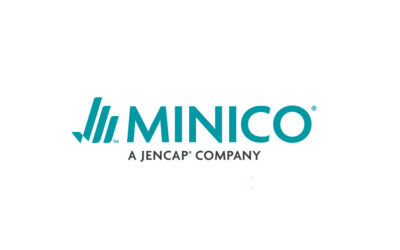The 2023 hurricane season has been punctuated by the damaging winds and rain of Tropical Storm Hilary in California as well as Hurricanes Idalia and Lee and Tropical Storm Ophelia on the Atlantic coastline. And it’s not over yet!
Risk management can go a long way toward mitigating incidents of property damage or bodily injury at a commercial property, but eventually something is bound to happen that will require your client to file an insurance claim. The insurance carrier’s skilled claims professionals are standing by to assist, but the policyholder also has a role to play. As an insurance agent, you are well positioned to provide guidance. With that in mind, here are three things that adjusters want commercial property owners to know about filing an insurance claim.
1. Notify the Insurance Agent or Carrier
One of the single most detrimental actions a property owner can take regarding a claim is to wait too long to notify their insurance agent or carrier. In general, policyholders should make notification as soon as possible after they experience a significant insurance-related event at the covered property that could result in a claim or lawsuit.
The three most time-sensitive events are bodily injuries, property losses, and lawsuits. Delayed notification can have a negative effect on the claims adjuster’s ability to investigate the incident. In some cases, a delay can make it impossible for the adjuster to gather the information needed. For example, if weather or environmental conditions may have played a factor in the incident, such as bodily injury from a slip-and-fall event on icy steps, delaying notification of the incident for weeks or months could nullify the claims adjuster’s ability to document conditions at the property at the time of the injury.
If a property owner is served with a lawsuit, it is absolutely critical for them to notify their insurance carrier immediately. By the time the papers land in your client’s hands, the clock is already ticking. In the majority of jurisdictions, a defendant is permitted 20 or 30 days to respond to a summons and complaint. The insurance carrier needs to have the maximum time available to provide the proper support. In fact, failure of a policyholder to notify their insurance carrier in time to meet the response deadline may be a violation of the insurance contract, which may void the insurance carrier’s responsibility to provide coverage. When served, the policyholder is advised to immediately email a copy of the summons and complaint to the insurance carrier’s claims department and their insurance agent. The email message should include the date and time of service and the name of the person served.
2. Document the Scene
When an employee or other person complains of an injury sustained on the insured premises, the first priority is to deal with any medical emergencies. Once medical issues have been addressed, it is important to document the incident in detail. Keep in mind that all injuries – no matter how small – need to be fully documented in the event the injured party decides at a later date to file an insurance claim or lawsuit against the property owner.
The incident report should include the injured person’s name, address, telephone number, names of witnesses, an in-depth description of the circumstances, and as much identifying information about the injured person as possible. The property owner or appropriate representative is advised to take photos to preserve a record of the scene as it was at the time of the incident including photos of the injured party if that person consents to being photographed. The completed report should be emailed to the insurance carrier the same day to enable their claims team to conduct a preliminary investigation.
In the case of property damage without injuries, the primary task is to document the incident. Photographs of the scene and any damage help to preserve a record of the extent and severity of the loss. The incident report also should include any observations, conversations with witnesses, telephone conversations, and contact information for everyone who is spoken with about this matter. Security camera footage is an additional resource that can be valuable in a claim investigation. The policyholder should avoid removing or disposing of debris until a claim adjuster makes an initial inspection with the exception of emergency or temporary repairs that are required to prevent further damage or address safety concerns. Receipts for repair materials can be submitted to the insurance carrier as part of the claim.
3. Leave Claims Handling to the Professionals
Insurance professionals know that it is never wise to DIY a claim. But do your clients know that? No matter how small or seemingly insignificant an incident may appear, it is vital to let the insurance adjuster handle it. In the immediate aftermath of an injury or damage to property on an insured’s premises, the policyholder should follow this list of important “don’ts”:
- Don’t discuss the claim. Policyholders, their representatives, and employees should avoid discussing the claim with visitors, witnesses, or another party’s lawyer or insurance company. Let the insurance carrier’s claims adjuster do the talking.
- Don’t give out information. Policyholders should refer all requests for information about the incident, the claim investigation, or potential settlements directly to the claims adjuster.
- Don’t admit liability. Saying anything that could be construed as admitting liability for property damage or bodily injury can be detrimental – and potentially costly – to the policyholder.
- Don’t make volunteer payments. If your client attempts to make a deal with the injured party to pay for medical treatment or property damage, it can nullify the insurance contract.
When it comes to risk management for commercial property owners, MiniCo’s program teams are ready to assist. Our underwriters and in-house claims team have industry-specific expertise to provide risk management information and resources for your clients who own property for self-storage facilities, nonprofit and social services organizations, agribusiness operations, and more! Learn more about our 19 exclusive programs on our website or contact a MiniCo expert for program details or to get a quote.




